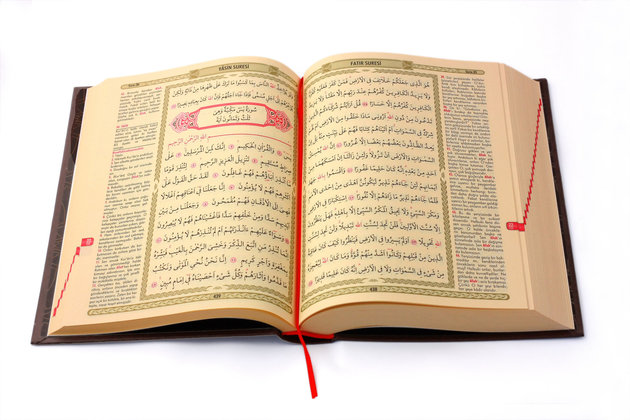Following Thursday’s tragic attack that killed more than 80 people in Nice, France, former House Speaker Newt Gingrich issued a call for American Muslims to be “tested” and deported if they “believe in Sharia” law.
“Western civilization is in a war,” Gingrich told Fox News’ Sean Hannity hours after the attack. “Sharia is incompatible with Western civilization.”
In a Facebook Live segment on Friday, Gingrich clarified his remarks, criticizing the media for “trying to grossly exaggerate” what he said on Fox.
“If you are a practicing Muslim and you believe deeply in your faith, but you’re also loyal to the United States and you believe in the Constitution, you should have your rights totally completely protected within the Constitution.”
He added that his comments weren’t “about targeting a particular religion,” but about “looking for certain characteristics that we have learned painfully time after time involve killing people.”
However, Gingrich wasn’t clear about how exactly he plans to look for those “characteristics.” And he didn’t walk back on his desire to use belief in Sharia as a test of American Muslims’ loyalty to their country.
The truth is, Gingrich would be hard pressed to find an American Muslim who isn’t influenced by Sharia in one way or another. That’s because Sharia law is an essential guide to Islamic life that encompasses a whole range of behaviors and faith practices ― from praying five times daily to abstaining from pork and alcohol.
HuffPost Religion put together this brief explainer for Gingrich and for others who think discriminating against an entire religious tradition will make America great again.
Sharia is primarily about a personal relationship with God.
Sharia is an Arabic word that means a path to be followed, commonly a path that leads to water. This image of a road leading to the sustenance needed for life is a powerful one. Faraz Rabbani, an Islamic scholar, explained to the BBC: “The linguistic meaning of Sharia reverberates in its technical usage: just as water is vital to human life, so the clarity and uprightness of Sharia is the means of life for souls and minds.”
Sharia is drawn from two main sources ― the Quran, Islam’s holy book, and the Sunnah, or the example set by the Prophet Muhammad. It encompasses both a personal moral code and a general religious law that can influence the legal systems of Muslim-majority countries. It’s also a living body of law ― it developedover the centuries and is still being examined with fresh eyes by Muslim scholars and believers today.
Many religions have legal codes that offer ethical and moral guidelines for practitioners of the faith ― from the canon law of the Catholic Church to Jewish religious rules and practices, called Halakhah (which, like Sharia, also means “the path that one walks.”) And just as opinions about these laws vary greatly within each of these traditions, Muslims around the world fall on a vast spectrum when it comes to how to interpret Sharia.
Asking a Muslim to stop believing in Sharia is like asking her to stop practicing her religion. It is a blatant attack on religious liberty.
Much like Jewish Halacha, which can influence everything from a person’s diet to the clothes they wear, Sharia is a set of laws that covers all aspects of a Muslim’s life, imbuing even mundane acts with a touch of divine significance.
According to the American Muslim scholar Imam Suhaib Webb, there are five main things that Sharia law aims to preserve: Life, learning, family, property, and honor. From these main goals come laws about things like marriage, eating, worship, financial transactions, and many other essential aspects of living in a community.
Sharia is not all about punishment.
Critics like to focus on violent verses from the Qur’an in order to paint Sharia as a cruel, draconic legal system that is antithetical to American values. It’s true that Sharia does prescribe harsh punishments for acts like adultery, but according to journalist Omar Sacirbey, many of these punishments have been taken out of context, repealed, or require an incredibly high level of evidence.
According to the scholar Qasim Rashid, taking any religious text out of its historical and spiritual context will not result in an “honest legal interpretation.” The Bible also contains verses that could be seen as violent ― such as the verse in theChristian gospels when Jesus says, “Do not suppose that I have come to bring peace to the earth. I did not come to bring peace, but a sword.”
Rashid writes, “The most ‘Muslim country’ in the world is likely America, because America guarantees freedom of religion, freedom of speech, freedom of expression and freedom of thought—all hallmarks of Shariah Law. Those nations that oppress in the name of Shariah are as justified in their claims, as the slave owners who claimed their right to slavery was based on the Bible.”
You do NOT need to worry about Sharia dominating American life and courts.
Because nothing trumps the U.S. Constitution. No national Muslim organization has ever called for Sharia to supercede American courts. It’s completely beside the point of Sharia and it’s not something American Muslims want.
And yet, during the run-up to the 2012 election, efforts to ban Sharia law popped up in at least two dozen states across the country ― a development that Gingrich, then a presidential hopeful, helped spur on. Many claim the initiative was a response to an imagined threat that was more about promoting anti-Muslim sentiment than about preserving American law.
Not only are these anti-Sharia campaigns unconstitutional, they also often end up hurting Muslims. According to Abed Awad, a specialist in Islamic law, banning Sharia law makes it difficult for Muslims to provide cultural context in cases that have to do with divorce and marriage.
One example is Soleimani v. Soleimani, a case that was decided in Kansas, where a ban against foreign law being used in state courts was adopted by state lawmakers in 2012. A Muslim woman had signed an Islamic agreement with her husband that guaranteed that she would receive $677,000 in case of death or divorce. But the jury chose not to factor that contract into its decision about the case, and the woman ended up getting a substantially lower sum.
It’s not the first time America’s hatred of the “other” has masqueraded as an attempt to ban “foreign” authorities.
If Gingrich took one moment to look back at history, he’d see that his own religious tradition, Catholicism, was once the victim of the kind of religious discrimination he’s now fomenting against Muslims. Many of the Founding Fathers were wary of Catholicism. The American statesman John Jay actually wanted Catholics to“renounce the pope and foreign authorities” before they could serve in the government.
During the 19th century, the number of Catholics in the United States tripled because of immigration. This influx led to the rise of anti-Catholic, nativist sentiment, which manifested itself in violent ways, with the burning of convents and churches.
In the 1920s, when the first Roman Catholic tried to run for president, it wasrumored that he’d invite the pope to live in the White House and would strip Protestants of their citizenship.
Catholics weren’t the only group that has been targeted on American soil for their religious beliefs. Looking back at the experiences of Mormons, Jews, Sikhs, Hindus, and atheists in this country, it becomes sadly obvious that hatred of the “other” is as American as apple pie.




